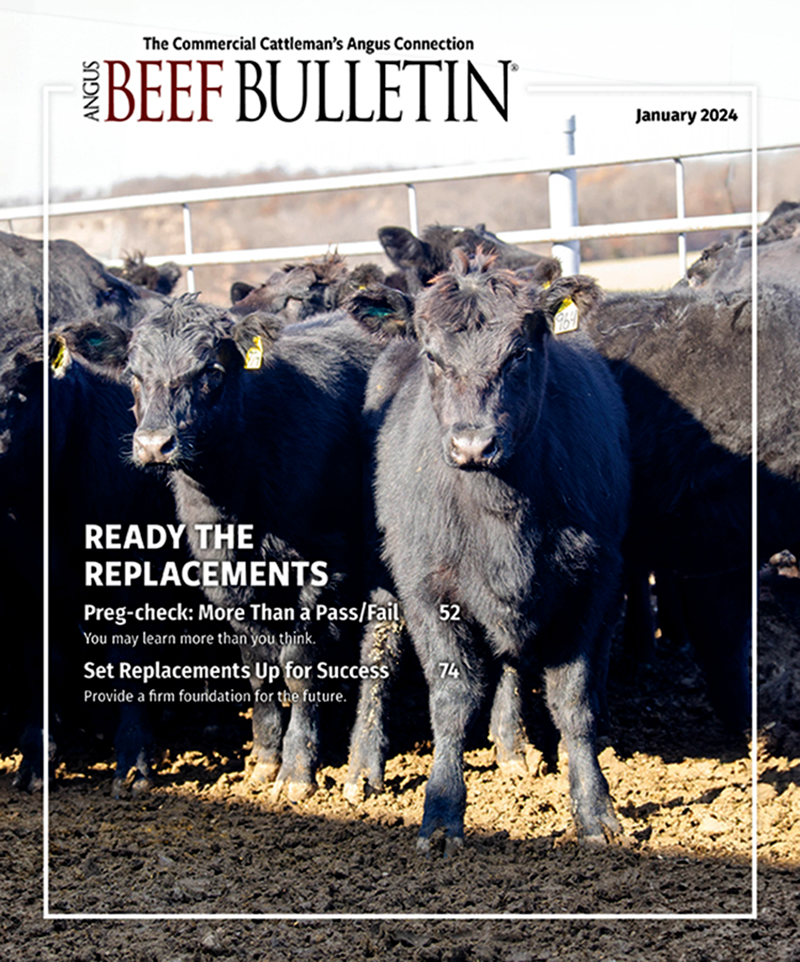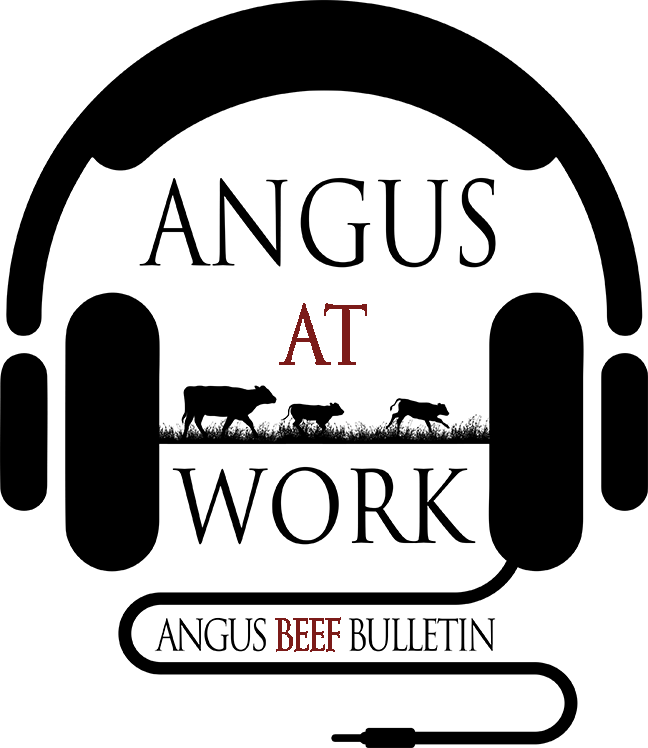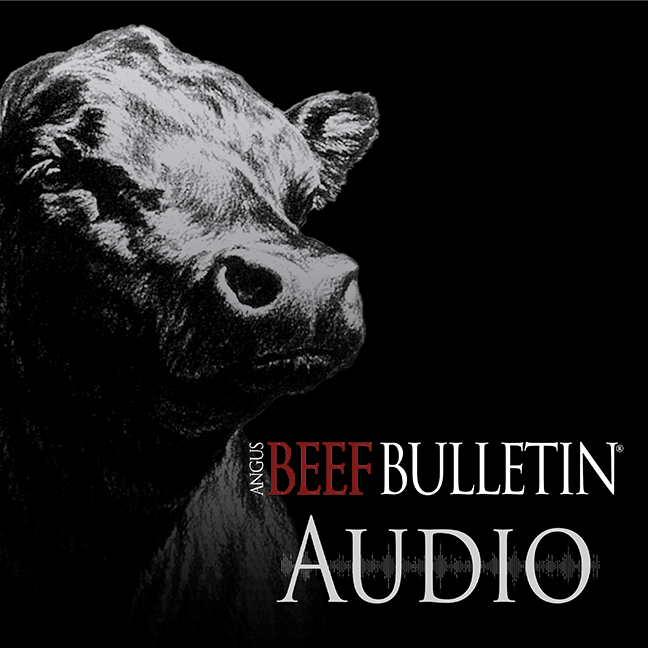
Association Perspective
Navigating Angus bull prices.
In the intricate world of Angus bull buying, the question of cost looms large for ranchers seeking to balance quality genetics with budget constraints. I have had the privilege of witnessing the shifts and nuances in the market. In today’s dynamic landscape, the question arises: What should an Angus bull cost? One easy answer: What are four to five calves worth at your weekly market?
During the bi-annual Angus Feeder Special at the Oklahoma National Stockyards in Oklahoma City this past week, 600-pound (lb.) steers that were weaned, vaccinated and sired by registered Angus bulls brought $240-$276 per hundredweight (cwt.), with a weighted average of $252 per cwt. Using the model of paying for a bull the equivalent of four to five feeder calves, that equates to a potential average purchase price for bulls of $6,048 to $7,560.
If we compare this actual market comparison from a calf sale hosted Dec. 4, 2023, to what bulls averaged in Kansas and Oklahoma from September through December — it’s pretty close. More than 1,300 registered Angus bulls sold at public auction in my region (Kansas and Oklahoma) for an average of $7,081.
The cost of an Angus bull is a multifaceted consideration that extends beyond a mere monetary transaction. It represents an investment in the future of a rancher’s herd and, by extension, the success of their operation. The price of an Angus bull is influenced by a myriad of factors, each playing a crucial role in determining its value.
First and foremost, genetics take center stage. The genetic makeup of an Angus bull is the bedrock upon which his value is built. In a market increasingly driven by specific traits, such as feed efficiency, fertility and carcass quality, buyers are discerning and willing to pay a premium for bulls that embody these desirable genetic characteristics.
I have observed a trend toward a more comprehensive evaluation of genetic potential. Ranchers are recognizing the upfront cost of a high-quality Angus bull is an investment that can yield dividends in improved herd performance and market competitiveness. It’s not just about the purchase price; it’s about the long-term gains that can be achieved through strategic genetic selection.
Market dynamics also play a pivotal role in determining Angus bull prices. The demand for top-tier Angus genetics on both domestic and international fronts has surged, driving competition among buyers. When supply and demand factors come into play, some extremely high prices can be reached for those elite registered Angus bulls.
However, it’s essential for ranchers to approach the question of cost with a holistic perspective. While investing in quality genetics is crucial, buyers must also consider their operational budget and long-term breeding goals. Striking the right balance between quality and affordability is key to a sustainable and successful breeding program.
To navigate the complexities of Angus bull prices, ranchers should stay informed about market trends and engage with reputable breeders. Collaborating with experts in the field, attending industry events, and leveraging available resources can provide valuable insights into current market conditions and help buyers make informed decisions.
In conclusion, determining what an Angus bull should cost in today’s market requires an understanding of the interplay between genetics, market demand and operational considerations. My advice to ranchers is to view the purchase of an Angus bull as an investment in the future of their herd. While the market may dictate certain price trends, the ultimate goal is to find a bull that aligns with both genetic objectives and budget constraints, ensuring a solid foundation for the continued success of their operation.
Editor’s note: Jeff Mafi is regional manager for the American Angus Association, covering Region 8, which includes Kansas and Oklahoma. Click here to find the regional manager for your state.



